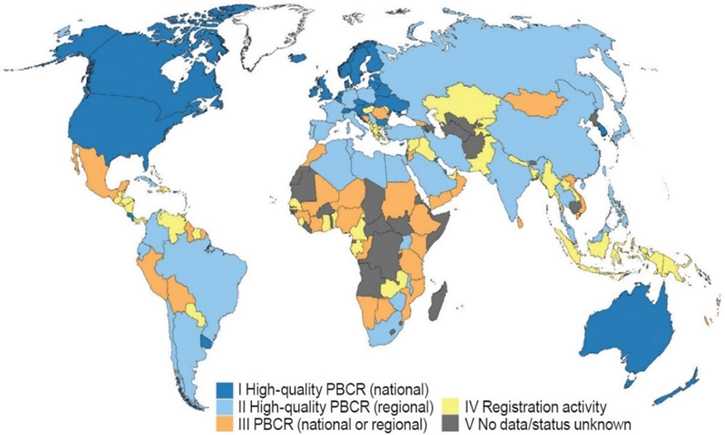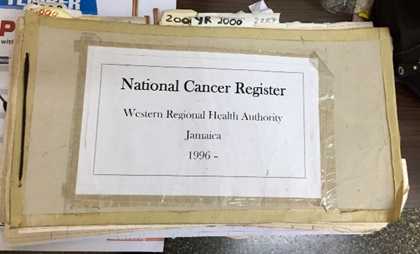Cost of Cancer Registration in Limited Resource Settings
With an estimated 14.1 million new cancer cases, 8.2 million deaths, and 32.5 million cancer survivors worldwide in 2012, cancer is a leading cause of illness and early death. More than 50% of the world’s cancer cases and 65% of cancer deaths occur in limited-resource settings, and more than 48% of cancer survivors live in these areas. In the next two decades, new cancer cases are projected to increase by 70% worldwide, mostly in limited-resource settings.
Limited cancer data exists globally
High-quality population-based cancer surveillance data are needed to describe cancer burden, patterns, and outcomes in order to inform cancer prevention, detection and control activities, and evaluate interventions so that the best approaches to ease burden and suffering are adopted. There are large inequalities in the existence, coverage, and quality of cancer surveillance systems across the world, with limited information available in limited-resource settings. For example, the percentage of the population covered by cancer registries ranges from nearly 100% in North America to less than 10% in Asia, Central America, and South America, and roughly 2% in Africa.

Global status of population-based cancer registration as of mid-2013. PBCR stands for Population-Based Cancer Registries. High-quality PBCR implies publication in Cancer Incidence in Five Continents. Source: Courtesy of Freddie Bray, IARC
Closing the gap

Early version of one of the cancer registries in Jamaica. Photo by Elizabeth Van Dyne.
Only one in five countries in limited-resource settings have the data needed to inform cancer control plans. To address this gap, the International Agency for Research on Cancer (IARC), a specialized agency of the World Health Organization (WHO), has initiated the Global Initiative for Cancer Registry Development (GICR) to establish regional resource centers to provide technical support and guidance for the development and improvement of population-based cancer registries around the world. IARC has developed a framework for planning and implementing population-based cancer registries. However, lack of information about how much registries cost is a major barrier to planning, implementing, and evaluating cancer registration. Yet investing in high quality surveillance data is crucial so countries can select the best interventions that are both cost effective and most improve health.
Developing efficient solutions
CDC, RTI International and others partner developed a tool and used it to collect standardized cost and resource data from 11 registries in Colombia, India, Kenya, Barbados, and Uganda. Findings from this study have been published as a series of manuscripts in Cancer Epidemiology. The study found that partnerships are crucial to developing and sustaining registries. While registries can be expensive, they are less expensive in low- and middle-income countries, and the population-level cost is low (less than $0.01 to $0.22 per person). Efficient data collection processes and organizations can cut costs further.
Information on the cost of establishing, improving, maintaining, and expanding cancer registries is essential to ensure adequate funding is available for cancer registration activities. Accurate and reliable costing data is also critical in supporting country-level and regional efforts to plan, implement and evaluate investments in cancer registration.
Learn More:
Podcast: Costing Tool for International Cancer Registries
Article Summary: Developing a Cost Data Collection Tool for Cancer Registry Planning
- Page last reviewed: February 2, 2017
- Page last updated: February 2, 2017
- Content source:
Global Health
Notice: Linking to a non-federal site does not constitute an endorsement by HHS, CDC or any of its employees of the sponsors or the information and products presented on the site.


 ShareCompartir
ShareCompartir